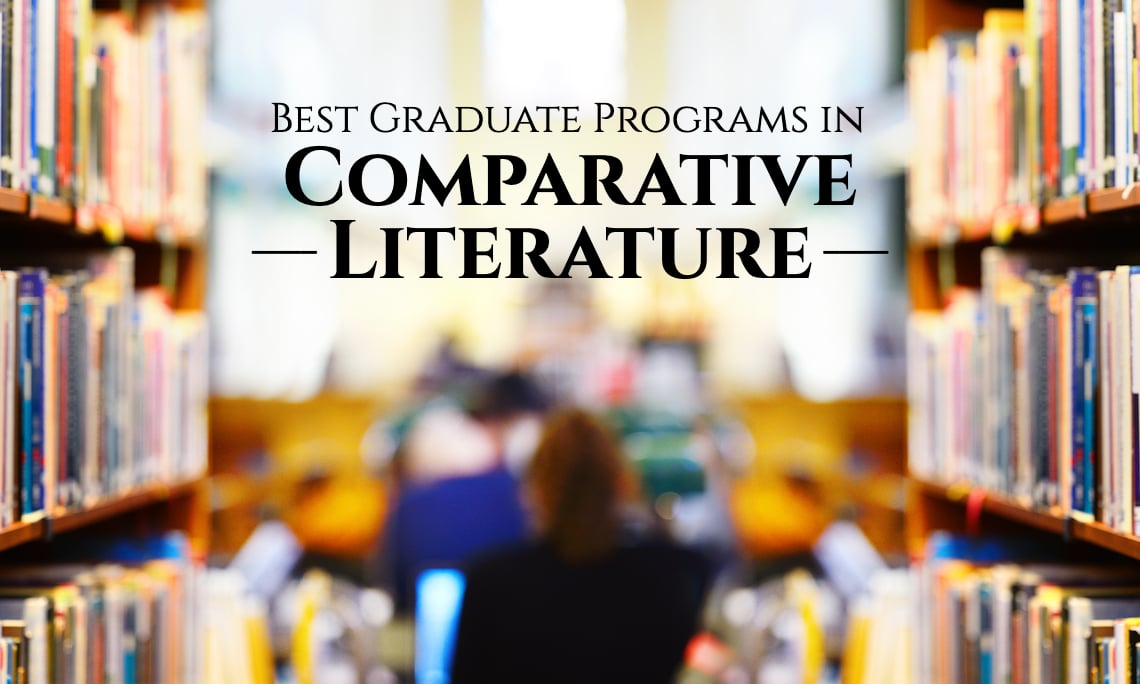| Rank | School | Location |
|---|---|---|
| 1 | Harvard University | Cambridge, Massachusetts |
| 2 | Columbia University In The City Of New York | New York, NY |
| 3 | University of California, Riverside | Riverside, CA |
| 4 | Yale University | New Haven, Connecticut |
| 5 | University of California, Berkeley | Berkeley, CA |
| 6 | University of Chicago | Chicago, IL |
| 7 | Princeton University | Princeton, New Jersey |
| 8 | Cornell University | Ithaca, NY |
| 9 | Stanford University | Stanford, CA |
| 10 | New York University | New York, NY |
This is a ranking of the Best Graduate Programs in Comparative Literature in the U.S. This ranking is designed for students to be informed of college and degree options for studying Comparative Literature.
The study of comparative literature places important literature in its necessary cultural context. This approach allows scholars to see between societies and the literature they produce to engage in thorough real-world analysis, including cross-cultural interactions.
Students will learn the cultural history of the societies whose literature they analyze, often including learning many languages along the way.
A master's or doctorate degree in Comparative Literature is an interdisciplinary course of study. Graduates attain expertise in several literature and cultural traditions, often across languages, as they study with faculty (many of whom may hold positions in different departments).
Students interested in obtaining a higher degree in comparative literature will build upon their solid undergraduate foundation, expanding their knowledge of at least two literature traditions, and at least one foreign language, into a deep knowledge of three to four traditions and three to four languages (often including both foreign and classical).
Given the vast range of cultures and topics in which graduates will have expertise, potential career paths vary. While some graduates find themselves employed as journalists, writers or editors, others may find themselves employed in tourism or politics. Graduates may even find themselves teaching on one of their many areas of knowledge, or finding specific work relevant to their interests.
Colleges may download our badge.
The Best Graduate Programs in Comparative Literature
Harvard University
Cambridge, Massachusetts

Though Harvard University formally established the Department of Comparative Literature in 1906, students can trace the study of comparative literature back to 1894. Today the Department offers a full range of undergraduate and graduate studies with numerous resources and networking connections for publication, research, study abroad, and more.
At the graduate level, the Department offers a Doctor of Philosophy in Comparative Literature.
The 28 faculty and 50 graduate students cover a wide variety of specialties and research areas such as drama, oral poetics, multilingualism, and postcolonialism. Interdisciplinary work is available through a variety of graduate seminars, journals for publishing, and conferences.
Students can tailor their classes and other studies towards their career goals.
Credit requirements: a total of 16 courses
Selection of possible courses:
- Literature on Trial: Kafka in Paris
- Literature, Diaspora, and Global Trauma
- The Ancients and the Moderns: Modern Critical Theory and the Classics
- Mobility and Materiality: Case Studies in Networks of Collecting and Displacement
- Public Humanities Workshop
Start dates: Fall only
Admissions and transfer credit information: Applicants must submit prior transcripts, a 10-20-page writing sample, a statement of purpose, letters of recommendation, and standardized testing scores. Strong applicants will have a background in one or two foreign languages.
Admissions considers graduate level transfer credits on a case-by-case basis. Admissions accepts a maximum of six transfer credits.
Accreditation: Harvard University receives accreditation from the New England Commission of Higher Education
Columbia University In The City Of New York
New York, NY
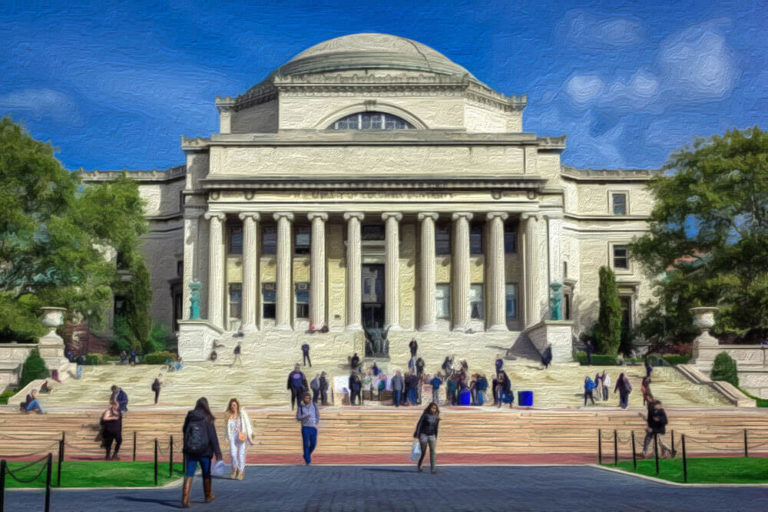
The Department of English and Comparative Literature offers several relevant graduate level degree programs including a BA/MA dual track, MA program with free-standing or sequential tracks, a Master of Philosophy, and a Doctor of Philosophy.
Each program provides in-depth study with experienced faculty members who bring personal expertise and networking opportunities into the classroom.
The Master of Arts in English and Comparative Literature free-standing track is a terminal degree recommended for students not seeking further advancement. Students who are interested in further study should enroll in the MA sequential track.
Both MA programs require students to complete the MA Essay Program. Students work with a faculty sponsor to create a 25-30 page extended written work.
Before graduation, MA students must also demonstrate reading proficiency in a second language.
Credit requirements: Two residency units consisting of eight graded courses totaling 30 credits
Selection of required courses:
- MA Seminar
- MA Essay Tutorial
- Three 6000-level seminars
Learning enrollment options: Full or part-time
Program length: One academic year, full-time
Start dates: Fall only
Admissions and transfer credit information: Prospective students must submit previous academic transcripts, a statement of purpose, resume, three letters of recommendation, standardized testing scores, and a sample of scholarly writing.
Accreditation: Columbia University receives accreditation from the Middle States Commission on Higher Education.
University of California, Riverside
Riverside, CA
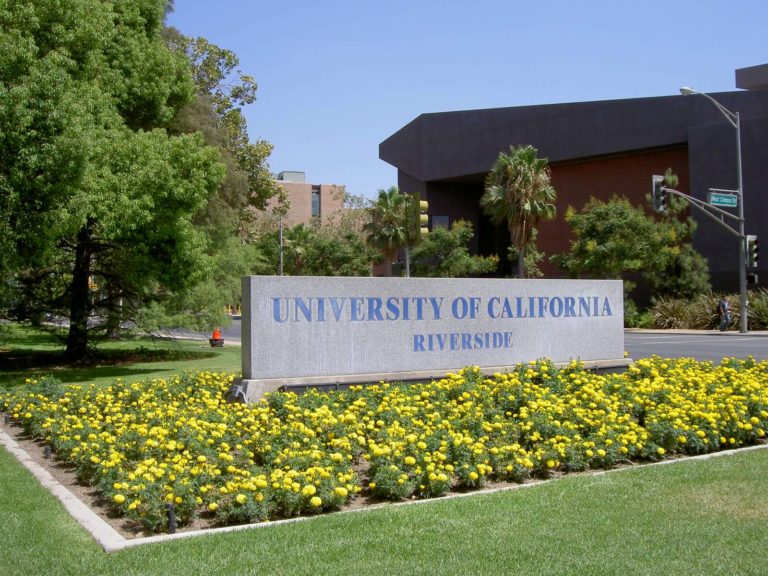
The College of Humanities, Arts, and Social Sciences offers a Master of Arts of PhD program in Comparative Literature. Undergraduate studies are also available.
The Master of Arts in Comparative Literature maintains two specialty tracks, interliterary studies or interdisciplinary studies.
Students in the interliterary study track choose three national/diasporic literatures to study in the original languages.
These languages may include Indonesian, Malaysian, Russian, Tagalog, Vietnamese, and many more.
The interdisciplinary track allows students to cross study in other departments including Anthropology, Dance, Theatre, Gender and Sexuality Studies, and others.
Both tracks emphasize creative thinking, intensive reading, and excellent writing skills. Upon graduation students are ready to pursue careers or further education.
Credit requirements: 36 units of course work
Selection of courses:
- Seminar in Comparative Literature
- History of Criticism
- Colonialism and Postcolonialism
- Pastoral Literature: From Antiquity to the Modern Age
- German Aesthetic Theory
- Canons in Comparative Literature: Expanding the Canons from a Global Comparative Perspective
Admissions and transfer credit information: Students must submit two copies of official academic transcripts from all previous institutions showing a minimum GPA of 3.0, a Statement of Purpose and a separate Personal History Statement (note that this is not equivalent to a resume or CV), a 10-15 page writing sample, standardized testing scores, and three letters of recommendation.
Accreditation: UC Riverside receives accreditation from the Western Association of Schools and Colleges (WASC).
Yale University
New Haven, Connecticut
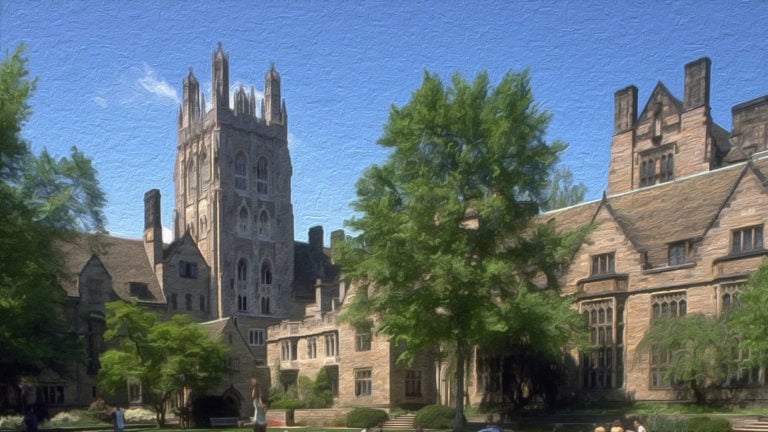
Yale's Department of Comparative Literature offers four doctoral degree tracks in the subject: Comparative Literature, or Comparative Literature with joint degrees in Classics, Film and Media Studies, or Renaissance Studies.
The standard PhD in Comparative Literature track still requires students to develop a focus of study. This should combine intellectual diversity with one or two national or language-based literatures. Upon graduation students should be familiar with no less than four foreign languages, which must include one classical or old language such as Latin, Greek, or Biblical Hebrew.
By the end of the third year of study students should have all coursework and language study complete so that students may spend the remaining time developing the dissertation. Students will also begin serving as teaching fellows in the third year.
The department recommends that the dissertation be between 200-300 double spaced pages when complete.
Credit requirements: 14 semester courses
Selection of required courses:
- Proseminar in Comparative Literature
- Three courses in literary theory and methodology
- One course each in poetry, narrative fiction and drama
- One course each in Ancient or Medieval European literature; in Renaissance or Baroque literature; in the Enlightenment or the Modern Age.
Program length: Up to six years
Admissions and transfer credit information: Prospective doctoral candidates must submit prior academic transcripts, a personal statement, a writing sample (20-page maximum), standardized testing scores, and three letters of recommendation.
Admissions accepts up to four graduate level course credits for transfer
Accreditation: Yale receives accreditation from the New England Association of Schools and Colleges.
University of California, Berkeley
Berkeley, CA

The Graduate Program in the Department of Comparative Literature at UC Berkeley offers a diverse curriculum in the PhD in Comparative Literature degree covering a breadth of material from early Mediterranean texts to Latin American and African studies.
Students may specialize in any area of Western Literature and can work with faculty members to create an individualized degree program to follow their career goals.
Ideally, students complete all coursework by the end of the second year of study and can spend the rest of the time on dissertation work. Students graduate with a knowledge of at least three other foreign languages. The Department offers teaching appointments typically after students have finished the first full year of the program.
Credit requirements: 10 courses
Selection of possible courses:
- Approaches to Genre: The Novel
- Studies in Contemporary Literature
- Problems in Literary Translation
- Philosophy and Literature
- Studies in Symbolists and Modern Literatures
Program length: Up to seven years
Admissions and transfer credit information: Applying doctoral candidates must submit all prior transcripts showing competitive GPA's, a statement of purpose and a personal history, up to 10-page writing sample, standardized test scores, and letters of recommendation. Admissions prefers preparation in at least one foreign language with additional languages preferred.
Accreditation: UC Berkeley receives accreditation from the Western Association of Schools & Colleges (WASC)
University of Chicago
Chicago, IL
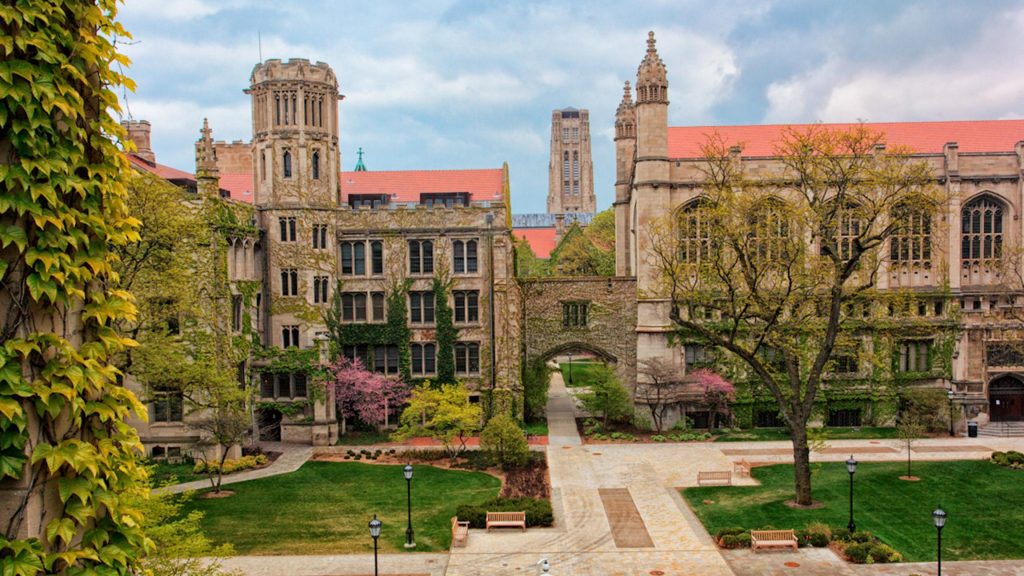
The Department of Comparative Literature offers a PhD in the field. Students without a prior Master's degree may earn an MA as part of the PhD track, however, no terminal MA program is available through the Department. As part of the MA degree, students must demonstrate knowledge of two foreign languages, one of which must be either French or German.
The Doctoral degree in Comparative Literature remains multidisciplinary and globally-minded. Faculty interests and expertise range from literary theory and classical studies through modern drama and film and cultural policy.
The Critical Inquiry Professorship has provided students with the opportunity to study under influential scholars such as Jacques Ranciere, Ian Hacking, and Julia Kristeva.
At the end of the second year of study students may choose a track for further research and teaching preparation, either National Literatures or Literature and Another Discipline.
Credit requirements: 8 graduate level courses
Selection of possible courses:
- Comparative Literature (required)
- War and Peace
- Balkan Folklore
- The Soviet Empire
- Mysticism and Modernity
- Global Speculative Fiction
- Comparative Literature Graduate Writing Workshop
Program length: Up to six years
Start dates: Fall only
Admissions and transfer credit information: Applicants must submit all prior transcripts, standardized testing scores, three or four letters of recommendation, a one to three-page statement of academic purpose, and a 15 to 20-page writing sample. Strong applicants will have proficiency in French or German and familiarity with at least one other foreign language.
Admissions does not accept transfer students into the PhD in Comparative Literature program.
Accreditation: The University of Chicago receives accreditation from the Higher Learning Commission of the North Central Association.
Princeton University
Princeton, New Jersey
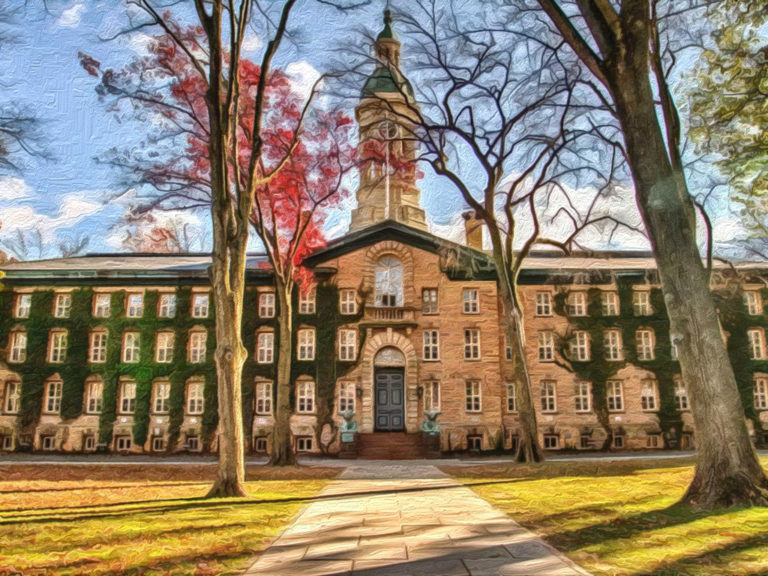
The PhD in Comparative Literature available through Princeton University maintains a globally-minded curriculum that encourages multidisciplinary study. Students have considerable flexibility in choosing their own courses within the guidelines of the Department.
This allows students to grow in awareness and understanding of other cultures and disciplines. The program prepares students for original scholarship and teaching or research positions.
The curriculum requires students to know two modern languages and one classical language. Additionally, students must demonstrate an in-depth knowledge of at least one literary tradition in which they will concentrate; and at least one other, with which they will compare it. They will develop an understanding of the historical, critical, and theoretical problems within these traditions.
Students typically complete all course work by the end of the second year of study.
Credit requirements: A minimum of 12 courses
Selection of possible courses:
- The Eighteenth Century in Europe
- Critical Theory: Dialectic and Difference
- Realism and Representation
- Forms of Lyric Poetry: Renaissance to Modern
- Reading Race and Gender
- Aesthetic Theory and Historicity
- Agency, Persons, Aesthetics: Epistemology of the Polis
Program length: Average, five years
Admissions and transfer credit information: Admissions requires students to submit all prior transcripts, a writing sample of 25-pages or less, standardized testing scores, and letters of recommendation.
Accreditation: Princeton receives accreditation from the Middle States Commission on Higher Education
Cornell University
Ithaca, NY
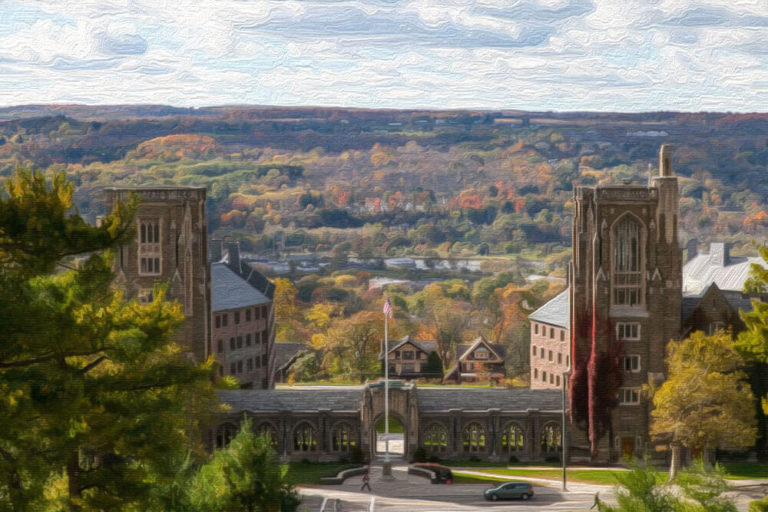
The Department of Comparative Literature offers PhD level graduate studies in the field. The program encourages creative thinking and flexible class scheduling. There are no set required courses that students must take. However, students should have advanced knowledge of at least two foreign languages.
Students must select a three-member special committee as soon as possible to help guide them through their studies. The committee must include one member of the graduate field in Comparative Literature, all other members may be from different departments or specialties.
Students have worked within numerous other graduate fields including Anthropology, Art History, Government, and the Law School. Students typically begin teaching in the second, third, and fourth years of study.
The expert faculty have seven areas of research specialization including: Comparative Media Studies; Critical Studies of Race, Gender, and Sexuality; Literary Theory and Translation Studies; Literature, Science, and the Environment; Politics and Aesthetics; Psychoanalysis and Trauma Studies; Transregional and Postcolonial Studies.
Credit requirements: Minimum of 12 courses
Selection of possible courses:
- Translation, in Theory
- Critical Theory and Climate Change
- Body Politics in African Literature and Cinema
- Literary Theory on the Edge
- Acoustic Horizons
- Perversions of the Linguistic Turn: Figure, Fetish, Formalization
- Romanticism
- Migration and Climate Justice
Admissions and transfer credit information: Doctoral candidates must submit all prior transcripts, 15 to 20-page writing sample, and letters of recommendation. Admissions no longer requires GRE scores for this program.
Accreditation: Cornell receives accreditation from the Middle States Commission on Higher Education
Stanford University
Stanford, CA
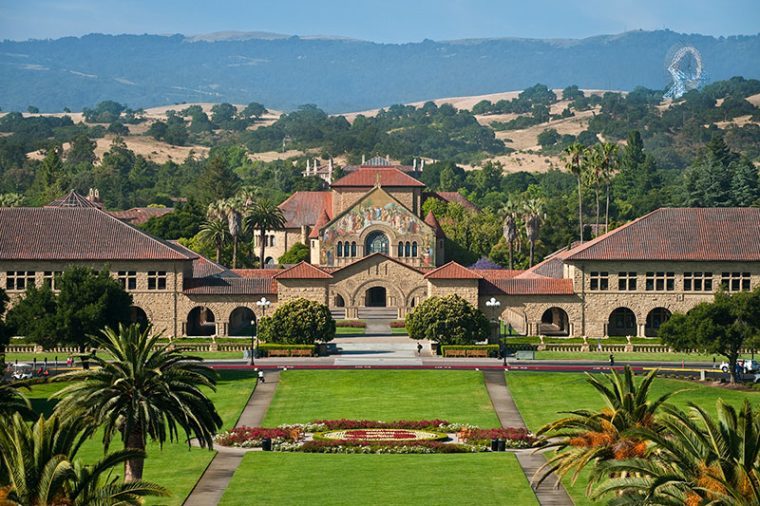
The Division of Literatures, Cultures, and Languages is comprised of five departments, each with several relevant graduate programs. The Department of Comparative Literature is one of the five and offers a PhD program in the field of its name.
The curriculum emphasizes critical and cultural analysis of literary theory in all forms.
Students must have a linguistic background to succeed in this program. The Department requires students to study three literature areas, two of which must be in the original foreign languages of the texts.
The Sanford Language Center includes the study of Arabic, Catalan, Hebrew, Persian, Turkish, Yiddish, and several other languages.
Additionally, students have access to focal groups, research groups, and reading groups that all assist with study and networking opportunities.
Selection of possible courses:
- Comparative Fictions of Ethnicity
- Tragic form and Political Theory
- Experiment and the Novel
- Great Books: Dramatic Traditions
- The Gothic in Literature and Culture
- Epic and Empire
Admissions and transfer credit information: Students must submit prior transcripts, a 15 to 20-page critical paper, letters of recommendation, and GRE testing scores.
Accreditation: Stanford receives accreditation from the Accrediting Commission for Senior Colleges and Universities of the Western Association of Schools and Colleges (WASC).
New York University
New York, NY
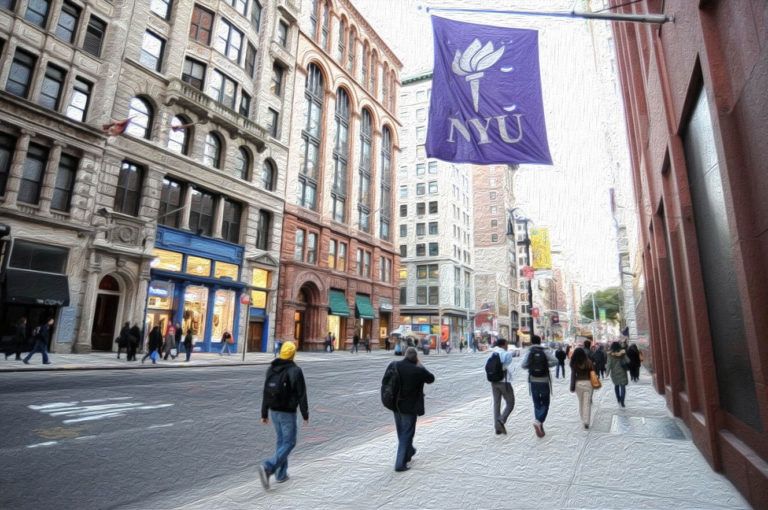
All doctoral students in the Comparative Literature PhD program at NYU must complete an MPhil degree as part of the PhD curriculum. This include students with a prior Master's degree. The Graduate School of Arts and Sciences also offers, in conjunction with the College of Arts and Sciences, a five-year BA/MA dual degree.
Doctoral candidates pursue a global perspective and interdisciplinary work that follows literature through cultural, geographical, and political boundaries.
In addition to working with other departments, students also have the opportunity to work with comparative literature programs at other universities through the Inter-University Doctoral Consortium which includes schools such as Columbia University, SUNY, Rutgers, and others.
NYU's Department encourages faculty and students to utilize the Comparatorium resource. This is a series of colloquia with speakers from a wide range of disciplines invited to present relevant intellectual work.
Credit requirements: Total of 72 points of coursework, 40 of which must be in Comparative Literature
Selection of possible courses:
- Seminar in Literature: Research Methods and Techniques - Practice and Theory (required)
- Culture & Critique: Documents, Documentary, Fiction
- Advanced Writing Seminar (required)
- Comparative Approaches to the Literatures of Africa, the Middle East, and Global South
- Hegel's Aesthetics
- The Sovereign and the Subject: Between West Asia and Europe
- Topics in French Cultural History: Blanchot and His Contemporaries
Program length: Up to seven years
Admissions and transfer credit information: Potential applicants must submit all prior transcripts, standardized test scores, letters of recommendation, resume, a writing sample of 12-15 pages, and a Statement of Academic Purpose. Students have the option to also submit a short Personal History essay.
Accreditation: NYU receives accreditation from the Middle States Commission on Higher Education
Successful Student ranks schools for the benefit of students. We do this by determining ranking criteria that would be most helpful to students seeking graduate programs in Comparative Literature.
This ranking was formulated by first consulting our sister site AcademicInfluence.com, which ranks schools from the influence of their faculty and alumni in the field of Comparative Literature, by publications and citations.
We then selected the universities with graduate programs in particular, and ranked the best schools by looking at graduate degree offerings, coursework variety, and academic reputation.
More resources:
